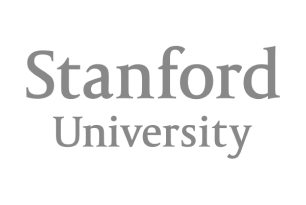Dr. Charles Lassiter, Ph.D.
Associate professor of philosophy with publications on mind, language, knowledge, and culture
Research Expertise
About
Publications
Aristotle and distributed language: capacity, matter, structure, and languaging
Language Sciences / Jan 01, 2016
Lassiter, C. (2016). Aristotle and distributed language: capacity, matter, structure, and languaging. Language Sciences, 53, 8–20. https://doi.org/10.1016/j.langsci.2015.05.011
Implicit racial bias and epistemic pessimism
Philosophical Psychology / Jan 12, 2017
Lassiter, C., & Ballantyne, N. (2017). Implicit racial bias and epistemic pessimism. Philosophical Psychology, 30(1–2), 79–101. https://doi.org/10.1080/09515089.2016.1265103
The coupling-constitution fallacy
Pragmatics and Cognition / Nov 01, 2013
Kagan, A., & Lassiter, C. (2013). The coupling-constitution fallacy. Pragmatics & Cognition, 21(1), 178–192. Portico. https://doi.org/10.1075/pc.21.1.08kag
How to power encultured minds
Synthese / Sep 06, 2018
Vukov, J., & Lassiter, C. (2018). How to power encultured minds. Synthese, 197(8), 3507–3534. https://doi.org/10.1007/s11229-018-01899-8
Diversity and Resistance to Change: Macro Conditions for Marginalization in Post-industrial Societies
Frontiers in Psychology / Jun 01, 2018
Lassiter, C., Norasakkunkit, V., Shuman, B., & Toivonen, T. (2018). Diversity and Resistance to Change: Macro Conditions for Marginalization in Post-industrial Societies. Frontiers in Psychology, 9. https://doi.org/10.3389/fpsyg.2018.00812
Implicating without intending on the Gricean account of implicature
Empedocles: European Journal for the Philosophy of Communication / Dec 01, 2012
Lassiter, C. (2012). Implicating without intending on the Gricean account of implicature. Empedocles: European Journal for the Philosophy of Communication, 4(2), 199–215. https://doi.org/10.1386/ejpc.4.2.199_1
Language and simplexity: A powers view
Language Sciences / Jan 01, 2019
Lassiter, C. (2019). Language and simplexity: A powers view. Language Sciences, 71, 27–37. https://doi.org/10.1016/j.langsci.2018.03.004
In search of an ontology for 4E theories: from new mechanism to causal powers realism
Synthese / Jun 03, 2021
Lassiter, C., & Vukov, J. (2021). In search of an ontology for 4E theories: from new mechanism to causal powers realism. Synthese, 199(3–4), 9785–9808. https://doi.org/10.1007/s11229-021-03225-1
Arational belief convergence
Synthese / Nov 21, 2019
Lassiter, C. (2019). Arational belief convergence. Synthese, 198(7), 6329–6350. https://doi.org/10.1007/s11229-019-02465-6
Could a robot flirt? 4E cognition, reactive attitudes, and robot autonomy
AI & SOCIETY / Jan 02, 2021
Lassiter, C. (2021). Could a robot flirt? 4E cognition, reactive attitudes, and robot autonomy. AI & SOCIETY, 37(2), 675–686. https://doi.org/10.1007/s00146-020-01116-6
Thinking, faster and slower
Organizational Cognition / Sep 01, 2022
Vukov, J., & Lassiter, C. (2022). Thinking, faster and slower. Organizational Cognition, 145–167. https://doi.org/10.4324/9781003169093-10
Particularized conversational implicatures and miraculous communication
Language Sciences / Jul 01, 2021
Lassiter, C. (2021). Particularized conversational implicatures and miraculous communication. Language Sciences, 86, 101401. https://doi.org/10.1016/j.langsci.2021.101401
When Words Do Things: Perlocutions and Social Affordances
J.L. Austin on Language / Jan 01, 2014
Lassiter, C. (2014). When Words Do Things: Perlocutions and Social Affordances. J.L. Austin on Language, 32–49. https://doi.org/10.1057/9781137329998_3
Sham Epistemic Authority and Implicit Racial Bias
Social Epistemology / Jan 02, 2019
Lassiter, C. (2019). Sham Epistemic Authority and Implicit Racial Bias. Social Epistemology, 33(1), 42–60. https://doi.org/10.1080/02691728.2018.1552995
Cognition Beyond the Brain: Computation, Interactivity, and Human Artifice
Philosophical Psychology / Jun 19, 2014
Lassiter, C. (2014). Cognition Beyond the Brain: Computation, Interactivity, and Human Artifice. Philosophical Psychology, 28(8), 1245–1249. https://doi.org/10.1080/09515089.2014.926442
Dogmatism and Domination: A Simulation Study
Episteme / Apr 12, 2023
Lassiter, C. (2023). Dogmatism and Domination: A Simulation Study. Episteme, 1–14. https://doi.org/10.1017/epi.2023.15
Review of David Chalmers, Reality+: virtual Worlds and the problems of Philosophy, New York: W.W. Norton & Company, 2022
Phenomenology and the Cognitive Sciences / Oct 20, 2022
Lassiter, C., & Kagan, A. (2022). Review of David Chalmers, Reality+: virtual Worlds and the problems of Philosophy, New York: W.W. Norton & Company, 2022. Phenomenology and the Cognitive Sciences. https://doi.org/10.1007/s11097-022-09864-0
Watching People Watching People: Culture, Prestige, and Epistemic Authority
Social Epistemology / Sep 03, 2022
Lassiter, C. (2022). Watching People Watching People: Culture, Prestige, and Epistemic Authority. Social Epistemology, 36(5), 601–612. https://doi.org/10.1080/02691728.2022.2114113
New Ontological Foundations for Extended Minds: Causal Powers Realism
Phenomenology and the Cognitive Sciences / Jun 10, 2022
Lassiter, C., & Vukov, J. (2022). New Ontological Foundations for Extended Minds: Causal Powers Realism. Phenomenology and the Cognitive Sciences. https://doi.org/10.1007/s11097-022-09817-7
Signs, Signs Everywhere, and Only Signs: William James on Pure Experience
Semiotics / Jan 01, 2018
Pfeifer, D. E. (2018). Signs, Signs Everywhere, and Only Signs: William James on Pure Experience. Semiotics, 79–86. https://doi.org/10.5840/cpsem20186
Externalizing Communicative Intentions
SATS / Jan 01, 2011
Lassiter, C. (2011). Externalizing Communicative Intentions. SATS, 12(2). https://doi.org/10.1515/sats.2011.010
How Not to Deal with the Tragic Dilemma
Social Epistemology / Jan 13, 2020
Mugg, J. (2020). How Not to Deal with the Tragic Dilemma. Social Epistemology, 34(3), 253–264. https://doi.org/10.1080/02691728.2019.1705935
Education
Fordham University
Ph.D., Philosophy / May, 2013
Experience
Gonzaga University
Associate professor of philosophy / September, 2019 — Present
Tenured faculty member in the philosophy department
Gonzaga University
Assistant professor of philosophy / September, 2013 — August, 2019
Untenured professor in the philosophy department
Links & Social Media
Join Charlie on NotedSource!
Join Now
At NotedSource, we believe that professors, post-docs, scientists and other researchers have deep, untapped knowledge and expertise that can be leveraged to drive innovation within companies. NotedSource is committed to bridging the gap between academia and industry by providing a platform for collaboration with industry and networking with other researchers.
For industry, NotedSource identifies the right academic experts in 24 hours to help organizations build and grow. With a platform of thousands of knowledgeable PhDs, scientists, and industry experts, NotedSource makes connecting and collaborating easy.
For academic researchers such as professors, post-docs, and Ph.D.s, NotedSource provides tools to discover and connect to your colleagues with messaging and news feeds, in addition to the opportunity to be paid for your collaboration with vetted partners.
Expert Institutions





Proudly trusted by





